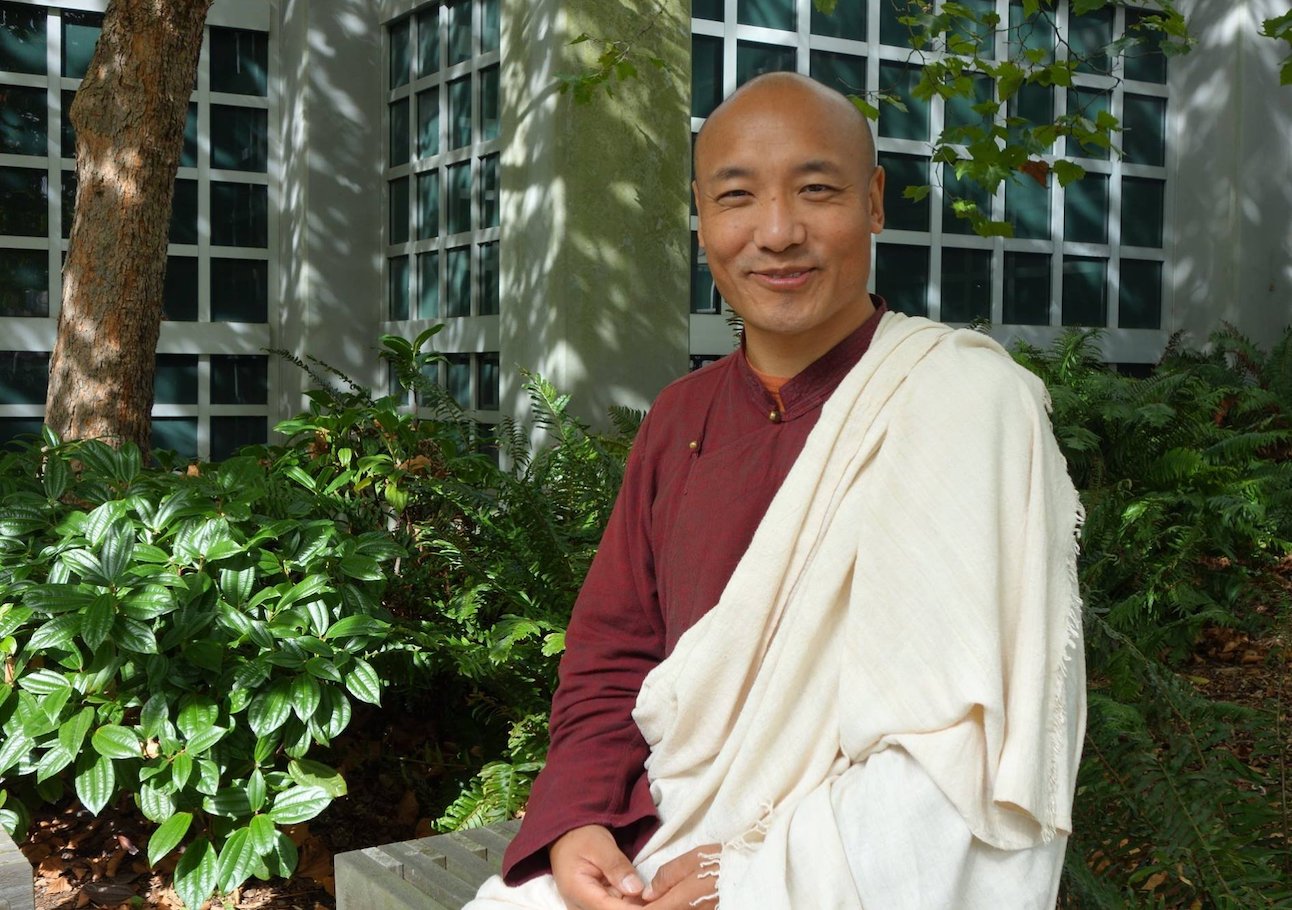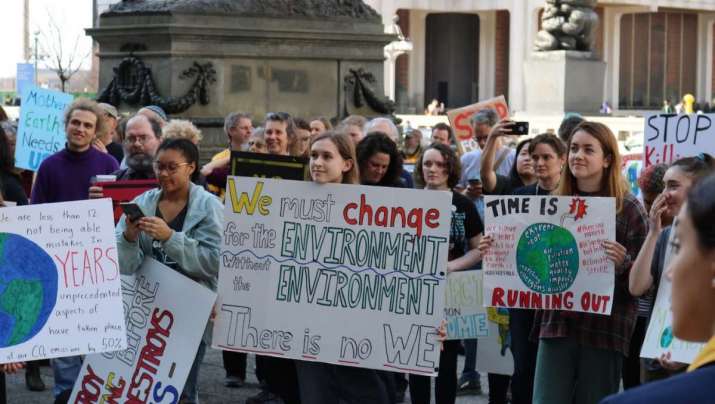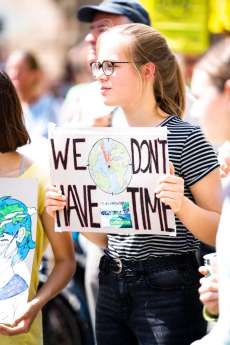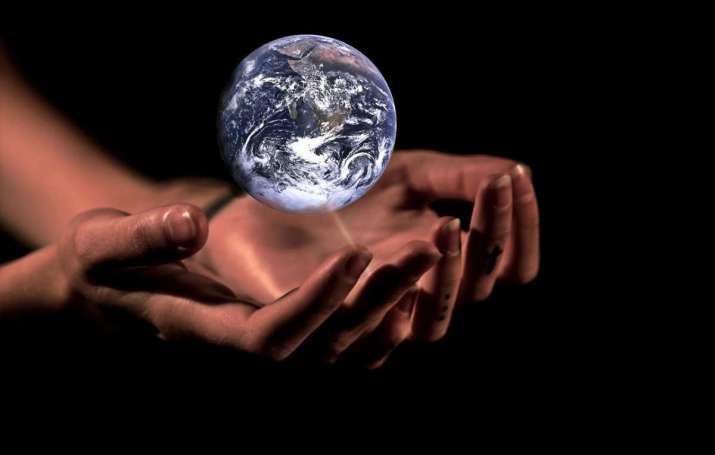FEATURES|COLUMNS|Dharma Gossip
Dharma in Action: Tackling the Climate Change Crisis

Anam Thubten Rinpoche. From botanika-bremen.de
The world is slowly waking up to the fact that climate change is neither a hoax nor a conspiracy theory. This is an important step toward taking action to address this unprecedented calamity. With melting ice fields, drought, forest fires, and the extinction of species, nature is showing us that the Earth is in big trouble, right before our eyes. More and more people are realizing that the danger is real and is hitting us hard. It’s difficult to believe that we still have to argue with some segments of society that this is a manmade problem.
There are a few reasons why some people continue to deny climate change: out of pure ignorance, some bluntly believe that it’s not happening at all, or is not a byproduct of human action; others simply deny it because this unimaginable cataclysm is too big for them to accept, so it’s easier not to pay attention to it. There is also an ulterior motive to such denial: not wanting to change our lifestyles or give up the many modern comforts to which we are addicted. Large corporations and individuals who are amassing fortunes from environmentally harmful practices often engage in activities such as trying to promote pseudo-science, and empowering politicians who obstruct progressive climate-related policies.
 Photo by Olivia Colacicco
Photo by Olivia ColaciccoThe denial of climate change is not just one single view; it is a mindset that usually tends to deny other important issues, such as human rights, liberty, fairness, gender equality, and racial equality. The environmental movement is a major challenge to many who benefit from traditional power and economic structures. This is why it is still underemphasized and not sufficiently addressed in political as well as religious institutions. There is a major unconscious resistance to fully welcome this movement. Our old consciousness knows that it would have to let go of a lot once the movement is embraced. One conspicuous analogy for this kind of resistance is the American Civil War, when the South went to war with the North in 1861–5. Southerners, whose economy was founded on the practice of slavery, didn’t want to abolish the ownership of humans and preferred to go to war in order to maintain the system that favored them. This might sound like an extreme comparison, but from a psychological point of view it’s a simple truth. But resistance to change doesn’t always have to be vocal; remaining silent is a polite way to stop change from happening.
The environmental movement is not one dimensional; it naturally involves other essential issues, including those mentioned above. This is because the very impulse that gave birth to the movement is an aspiration for the well-being of all of humanity as well as animals and the natural environment. It is a benevolent desire to create a healthier, happier world in which we and our children can enjoy life. Participating in this movement therefore motivates us to bring about awareness toward other social and political issues. The world is in great need of a collective awakening for this noble aspiration. It is time for all of us to invoke bodhicitta, the awakened heart that aspires to benefit all beings, and not only to feel it, but to express it through altruistic actions that truly help this world. One of the genius tricks Mara plays on us is to let us feel holy with altruism, yet not to actually do anything that requires action.
 Photo by Markus Spiske
Photo by Markus Spiske Photo by Markus Spiske
Photo by Markus SpiskeThere are many actions that can be taken to help save this planet and the dwindling number of extant species, including ourselves; for example, voting and changing our consumption and dietary habits. A merit of being in the free world is one’s right to vote for leaders who will create new policies, laws, and regulations that will ensure sustainability. It’s important to understand the visions of political candidates and to vote, if one has such a right. Changing our way of life, such as not using fossil fuels and plastics, and not eating certain food products, can have a cumulative positive effect. But all of these acts require effort and might require us to leave our respective comfort zones, which is not always an easy thing to do. All of these actions can be regarded as the way of the bodhisattva, as long as they come from the right motivation.
Sometimes we need a moral model that inspires us to be at our best in the world. The bodhisattva is perhaps the best exemplar that we can all strive to be. A bodhisattva is someone whose noblest impulse is awakened and selflessly works for the benefit of all, while confronting all the tribulations. Everyone has the potential to be a bodhisattva without needing to be a leading light. The world is waiting for each of us to leave our comfort zones and undertake a heroic journey to save this beautiful world together.

See more
Related features from Buddhistdoor Global
Buddhistdoor View: The Climate Crisis and Our Collective Need to Wake Up
Truth and Consequences: Capitalism, Climate Change, and the World We Created
Poetic Symbiosis in the Midst of Global Deforestation
Powered by Plants: Realistic Individual Action for the Earth
Buddhism and Sustainability: A Conversation with Green Monday Founder David Yeung
Related news from Buddhistdoor Global
Innovative Cleanup Project to Tackle the Great Pacific Garbage Patch Relaunched
Monks and Activists Hold Buddhist Ceremony to Address Deforestation in Cambodia
One-third of Himalayan Icecap Will Melt by the End of the Century, Study Warns
Ice Chorten in Ladakh Becomes a Buddhist Symbol of the Climate Change Crisis
Vegetarian Farmer Saves Beef Cattle from the Slaughterhouse














